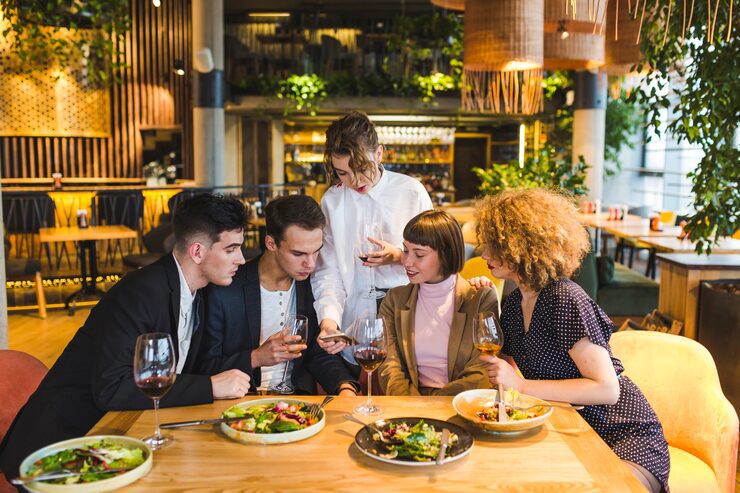Restaurants have always been places to enjoy meals, but their role in society stretches far beyond the plate. At their best, they are gathering points, social hubs, and cornerstones of community life. Choosing a restaurant near you isn’t just about convenience—it’s about supporting a space that strengthens community ties and creates lasting memories.
A Meeting Ground For People
One of the most valuable roles restaurants play is providing neutral ground where people can gather. Friends catch up over coffee, colleagues meet for lunch, and families celebrate milestones around a shared Table. In contrast to homes or workplaces, restaurants foster an environment where people of all backgrounds feel accepted.
In many communities, a local restaurant becomes the go-to spot for reunions, casual hangouts, and even important conversations. It is this inclusivity that transforms dining spaces into social anchors.
Fostering Belonging And Routine
For regular patrons, restaurants often serve as extensions of home. People gravitate to familiar spaces where they know the staff, the menu, and even the seat they prefer. This sense of routine fosters belonging. A neighbourhood café or diner, for instance, might greet regulars by name, creating a rhythm of daily or weekly connection that builds trust and loyalty.
These consistent interactions not only enrich individual lives but also weave bonds between people who might otherwise never meet. A restaurant, in this sense, nurtures micro-communities within the larger whole.
Celebrating Local Identity
Restaurants also act as mirrors of the communities they serve. Through food, décor, and traditions, they reflect the character of their neighbourhoods. A coastal eatery may highlight freshly caught seafood, while an urban restaurant might embrace fusion cuisine that reflects cultural diversity.
By showcasing local flavours and values, restaurants give communities pride in their heritage. They become cultural landmarks that symbolise a city’s or town’s uniqueness, making them essential to collective identity.
Supporting The Local Economy
Beyond social connection, restaurants play an economic role in strengthening communities. They create jobs, support nearby farmers and suppliers, and attract visitors who contribute to local commerce. A thriving dining scene often signals a healthy, vibrant neighbourhood where people want to live and work.
When community members choose to dine locally rather than at chain establishments, they reinforce these cycles of growth, keeping money circulating close to home. In this way, restaurants are more than eateries—they are engines of local resilience.
Spaces For Dialogue And Engagement
Many restaurants also serve as informal forums for dialogue. Over shared meals, people discuss ideas, debate issues, and build relationships that shape community life. Some establishments host events, from book readings to town meetings, offering platforms for expression and engagement.
These gatherings emphasise that restaurants are not just passive spaces but active contributors to civic and cultural life. They bring together voices that might otherwise remain separate, reinforcing the role of food as a unifying force.
Comfort In Challenging Times
During crises, restaurants often demonstrate their importance most clearly. Many provide meals for frontline workers, host fundraisers, or serve as collection points for aid. Their ability to adapt and step up in times of need shows that they are woven into the fabric of community life, not just as service providers but as partners in resilience.
This commitment deepens the emotional bond between restaurants and their communities, ensuring loyalty that lasts long after the challenges pass.
More Than Meals, They Create Memories
Ultimately, what elevates restaurants into community spaces is their role in memory-making. People recall not only the food but also the laughter of a family gathering, the first date that blossomed into love, or the long conversations that turned strangers into friends.
These experiences make restaurants repositories of collective memory, reinforcing their role as spaces that hold meaning far beyond their walls.
Final Thought
Restaurants are more than dining destinations; they are social, cultural, and economic lifelines for communities. By offering spaces for connection, reflection, and celebration, they remind us that food is not just about nourishment—it’s about belonging. In their role as community spaces, restaurants enrich lives in ways that extend well beyond the menu, making them vital to the heart of society.



































